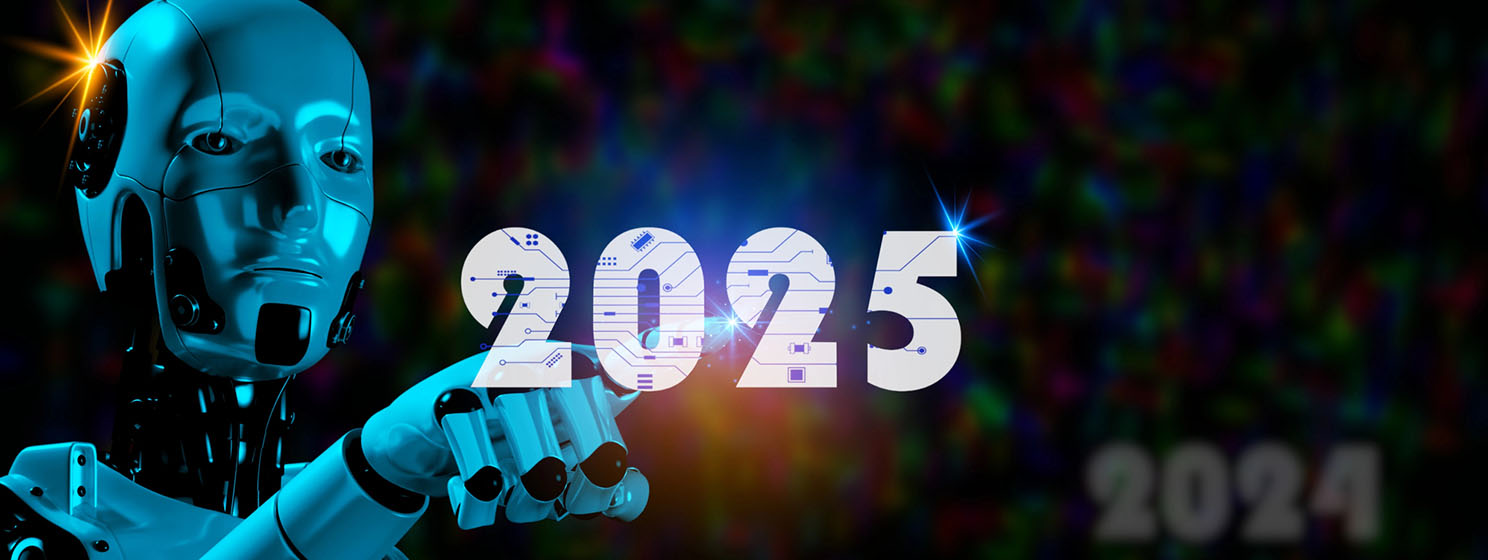|
Getting your Trinity Audio player ready...
|
Artificial Intelligence (AI) is expected to be a game-changer for Indian enterprises in 2025, and AI-led revenue generation is anticipated to take center stage. At the same time, the Indian government is looking to create adequate computing infrastructure available by the middle of 2025 while looking for ways to establish an ethical AI framework.
According to an IBM (NASDAQ: IBM) study, in 2025, the primary focus of AI investments for Indian organizations will focus on enhancing customer experience (27%), planning and strategy (16%) and optimization of IT functions (16%). To realize these goals, organizations must address key challenges, including data accessibility issues (46%), limited AI skills (42%) and difficulty in integration and scaling (38%).
“In 2025, AI is set to be the game-changer for Indian enterprises, revolutionizing productivity and enabling unprecedented scalability,” said Sandip Patel, Managing Director, IBM India & South Asia.
“As we work towards the vision of a Viksit Bharat (developed nation by 2047), the focus will be on leveraging AI responsibly to drive real business value—moving beyond low-risk experiments to strategic initiatives that provide a competitive edge and improved ROI. Additionally, the rise of small, high-performing AI models will redefine efficiency, delivering task-specific results that rival larger models at a fraction of the cost,” Patel added.
India launched the IndiaAI Mission in March 2024 to bolster India’s global leadership in AI and democratize the benefits of AI across all strata of society.
To provide an opportunity to explore the potential of AI in addressing critical challenges, IndiaAI has launched the second round of expression of interest (EoI), open to Indian academic institutes and organizations, autonomous bodies, research and development institutes and organizations, startups and companies. The deadline for application submission is January 9.
Five themes have been identified for which organizations can submit their proposals to develop practical tools and frameworks in collaboration with other partners. These include watermarking and labelling to develop tools to authenticate AI-generated content; ethical AI frameworks to align with global standards, ensuring AI respects human values and promotes fairness; AI risk assessment and management to create tools for safe deployment of AI in public services; as well as deepfake detection tools that enable real-time identification and mitigation of deepfakes, preventing misinformation and harm for a secure and trustworthy digital ecosystem.
This initiative aligns with India’s government’s vision of leveraging AI for inclusive growth.
“In 2025, I foresee AI being deeply integrated with blockchain, particularly for data integrity and fraud detection, enhancing trust in digital systems,” said Rohan Sharan, founder and chief executive of Timechain Labs, an on-chain application development firm utilizing BSV blockchain technology.
Key expectations
Raj Kapoor, chairman of Global Alliance for Ethical AI Innovation, told CoinGeek that despite advances, barriers such as limited AI expertise, ethical concerns, and inconsistent leadership commitment persist.
“Addressing these gaps could accelerate adoption in 2025. Future focus areas include responsible and ethical AI, scaling trustworthy AI solutions, strengthening governance, and integrating AI in underperforming sectors,” Kapoor said.
“Key expectations for 2025 include further democratization of AI tools, significant traction in generative AI for personalized applications, and enhanced public-private partnerships to ensure inclusivity. To address this The Global Alliance of Ethical AI and Innovation was also launched,” he added.
Besides the federal government, India’s central bank has also announced its plans to set up a committee to develop a framework for the ethical enablement of AI for the finance sector. The committee, comprising experts from diverse fields, will be tasked to recommend a robust, comprehensive, and adaptable AI framework for the financial sector. Simultaneously, RBI has introduced an artificial intelligence/machine learning (AI/ML)-based model, MuleHunter.AI, developed by the Reserve Bank Innovation Hub (RBIH), to tackle digital fraud. The AI model is also expected to help banks deal with the issue of mule bank accounts, a typical tactic fraudsters use to funnel the proceeds of their fraudulent activities.
At the same time, India has also called upon scientists and engineers to gain command over high-end technologies, such as AI and quantum computing, to further strengthen India’s position in the field of advanced, frontier and cutting-edge innovation.
“Right now, we are in the initial phase. Our aim should be to first gain command over these technologies, so that in the future, they can be used for the welfare of the people to fulfil their immediate basic needs,” Rajnath Singh, India’s Defense Minister, said.
AI compute capabilities by mid-2025
As part of the IndiaAI Mission, supercomputing resources, including more than 10,000 GPUs, will be made accessible to various stakeholders to foster the development of an AI ecosystem. According to Abhishek Singh, Additional Secretary, Ministry of Electronics and Information Technology (MeitY), AI computing capabilities will be available by the middle of 2025.
“As we move into 2025, we can expect continued investment in AI infrastructure and an emphasis on building India-specific use cases, ethical AI practices supported by public-private partnerships aimed at fostering innovation,” Sharat Chandra, founder of EmpowerEdge Ventures and a startup enabler, told CoinGeek.
According to Amit Kumar Gupta, a legal practitioner at the Supreme Court of India, explainable AI and government-led AI talent programs will drive ethical adoption and upskilling. AI startups will expand into niche areas, while small and medium enterprises adopt affordable AI solutions for operational efficiency.
“AI will advance in manufacturing, governance, and healthcare, emphasizing predictive maintenance, e-governance, and personalized medicine,” Gupta added.
In order for artificial intelligence (AI) to work right within the law and thrive in the face of growing challenges, it needs to integrate an enterprise blockchain system that ensures data input quality and ownership—allowing it to keep data safe while also guaranteeing the immutability of data. Check out CoinGeek’s coverage on this emerging tech to learn more why Enterprise blockchain will be the backbone of AI.
Watch: India is going to be the frontrunner in digitalization

 02-27-2026
02-27-2026 




